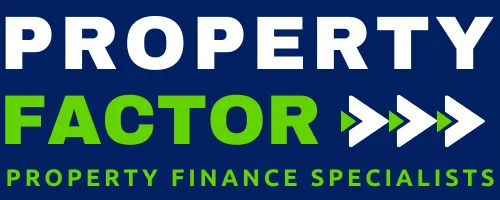Following on the article we published earlier this month, Homebuyers Should Nominate the Transferring Attorney, Property 24 did an editorial piece in which they approached several industry players for comment. It received very informative responses, demanding attention and possibly further debate. We are glad that the industry is taking a serious look at the process of attorney nomination and not just disregarding the potential danger of financial loss.
“Seller Who Has the Biggest Financial Risk”
It was argued that it is the seller who bears the greatest financial risk, as the attorney appointed by the purchaser could delay the transfer of the property for the benefit of the purchaser.
Unless the conveyancer runs off with the full proceeds of the sale following the transfer of the property, it is almost impossible for the seller to part with their property without being compensated for it. This process is supervised by the deeds office, who are very effective in their duties.
What my learned colleagues failed to address is the risk to the purchaser (and the seller as clearly illustrated in Supreme Court judgement Agu v Krige and Others (20763/2017) [2019] ZAWCHC 46) of the conveyancer stealing the proceeds deposited, which is a more prevailing fraudulent practice, hence, the requirement for the Legal Practitioners Fidelity Fund.
Any conveyancer, whether nominated by the purchaser, the seller or the estate agent, who fails to observe the terms and conditions of the sale agreement and recklessly or unnecessarily delays the transfer of a property, should be reported to the Law Society. We should not all be so complacent.
“The Correct Drafting of the Sales Agreement”
As Meyer de Waal so rightfully pointed out, we cannot emphasise enough the importance of a correctly drafted sale agreement, clearly and meticulously drawn up, without any ambiguity and opportunity for misinterpretation. It is very difficult for a conveyancer to effectively make ends meet of a badly drawn up document.
This is one of the many reasons why it is crucial that the seller appoints a qualified, reputable estate agent and not just go for the cheapest option or the luck of the draw in an open mandate. The estate agents’ responsibility in drafting the sale agreement, is as important as the conveyancer enforcing it.
Does the Conveyancer Represent the Person Who Appointed Him?
The responsibility of the conveyancer is first and foremost to enforce the terms and conditions of the sale agreement. If there is a dispute between the parties involved, an independent legal practitioner must be appointed to represent each party. The conveyancer representing the seller or the buyer, irrespective of who has appointed him, will be acting in conflict of interest.
In the example given by Mr Sampson in which he states that should a purchaser failed to make a deposit timeously and the seller requests a letter of demand be sent to the purchaser, he will acting in conflict of interest if the purchaser appointed him as the transferring Attorney. In humble opinion, this is not correct. If the purchaser failed to make the deposit on or before the due date, the conveyancer’s responsibility is to rectify the situation immediately, as the purchaser will be in breach of contract. He doesn’t even need instruction from the seller.
Interesting Alternatives to Consider
In the SA Estate Agent Facebook group over 25 industry professionals contributed their opinions.
The most thought-provoking of which, came from attorney, Allison Schoeman, who suggested that the conveyancer should be a completely independent appointed individual, not related to either the purchaser or the seller, perhaps appointed by the estate agent. Afterall, most individuals are not associated with conveyances and the transferring attorney is suggested by the estate agent. The offer to purchase merely needs to state that attorney “John Smith Inc” will attend to the transfer of the property. No need to mention
who nominated them.
“Each party is entitled to appoint an attorney, in addition to the Conveyancer to supervise the transaction”, writes Ms Schoeman. The fee for such service is very low and will ensure that both parties have adequate protection. The buyer can even go as far is putting his money in his attorneys’ trust account who can then issue a guarantee to the Conveyancer. Problem solved; transaction will run smoothly as the Conveyancer knows he is being monitored by two independent attorneys.”
Ms Schoeman I think you may just have hit “the nail on the head” there. It is indeed a solution to many issues raised and most importantly to the Supreme Court ruling in the aforementioned court case, which one cannot ignore as it has set a precedent that should change how the industry appoints the transferring Attorney.
Had Ms Schoeman’s strategy been adopted at the time, the purchaser would have paid the deposit to his attorney. If the attorney had stolen the money, the purchaser would have been recognised by the Legal Professions Fidelity Fund as the affected party and paid the claim. The payment of the purchase price condition of the offer to purchase would not have been fulfilled and the seller could have retained their property until the matter of the missing funds was resolved. A completely different and much more favourable outcome for all concerned.

